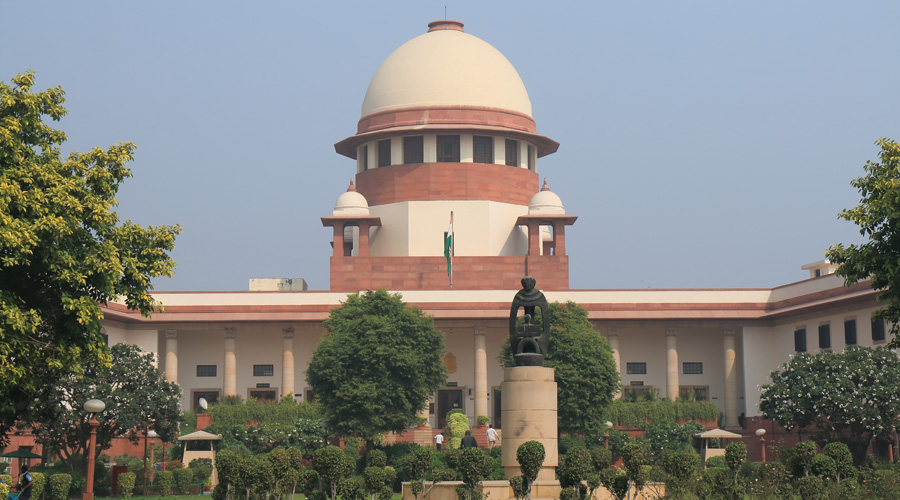The Supreme Court on Thursday ruled that courts are duty-bound to quash false criminal cases against innocent citizens to prevent the abuse of the legal process.
Therefore, if necessary, a criminal case can be quashed even before charges are framed or a trial court takes cognisance of the matter.
Such power to quash the case at the initial stage to prevent prejudice against an innocent accused person can be exercised by high courts or even sessions courts under Section 397 of the Code of Criminal Procedure (CrPc), which confers revisional jurisdiction, besides the inherent powers conferred on the high court to quash any criminal trial under Section 482 of the CrPc.
A bench of Chief Justice N.V. Ramana, Justices Surya Kant and Aniruddha Bose passed the ruling while directing Allahabad High Court to consider afresh the plea of gas agency dealer Sanjay Kumar Rai, who had challenged the high court’s refusal to quash a complaint registered against him under IPC Sections 504 (criminal breach of peace) and 506 (criminal intimidation).
The complaint was lodged by Kuldeep Mishra who claimed that the accused had allegedly threatened to riddle his face with bullets for seeking information under the RTI Act on alleged irregularities in the supply of gas cylinders.
The chief judicial magistrate (CJM) had refused to entertain Rai’s plea that he should be discharged as the complaint was false and police had merely recorded the statement of the complainant without hearing his version or making proper investigation.
Rai had further alleged that Mishra, who falsely claimed to be a reporter of a national daily, had dubious credentials and was involved in seven criminal cases. In spite of that, Rai said, police entertained Mishra’s complaint and filed a case against him.
When Rai appealed in the high court, it refused to quash the case on the ground that the framing of charges should be allowed and high courts have no power to interfere with interlocutory orders passed by the CJM.
Aggrieved, Rai filed an appeal in the apex court.
The apex court allowed his appeal and, in a recent judgment, said: “This court, nonetheless, does not recommend a complete hands-off approach. Albeit, there should be interference, may be, in exceptional cases, failing which there is likelihood of serious prejudice to the rights of a citizen.
“For example, when the contents of a complaint or the other purported material on record is a brazen attempt to persecute an innocent person, it becomes imperative upon the court to prevent the abuse of process of law.
“Accordingly, we set aside the impugned order dated 28.11.2018 and remand the case back to the high court for its reconsideration in accordance with law.”










